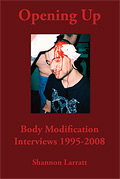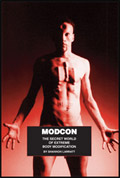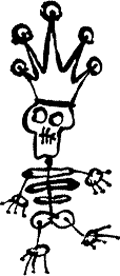I want to thank Sten for getting me the book Shamans Through Time. It's a collection of short writings over the past 500 years tracking Western culture's relation with and attitude toward shamanic peoples. I've been enjoying it immensely, and I think it's probably been helping me as well. I read the following passage in it last night, and I wanted to share that with you here. If you like this, you'll like the book. This is Knud Rasmussen in 1930, quoting Inuit shaman Igjugarjuk about how he became a shaman:
“When I was to be a shaman, I chose suffering through the two things that are most dangerous to us humans, suffering through hunger and suffering through cold. First I hungered five days and was then allowed to drink a mouthful of warn water; the old ones say that only if the water is warm will Pinga and Hila notice the novice and help him. Thereafter I went hungry another fifteen days, and again was given a mouthful of warm water. After that I hungered for ten days, and then could begin to eat…“These days of 'seeking for knowledge' are very tiring, for one must walk all the time, no matter what the weather is like and only rest in short snatches. I am usually quite done up, tired, not only in body but also in head, when I have found what I sought.
“We shamans in the interior have no special spirit language, and believe that the real angatkut do not need it. On my travels I have sometimes been present at a seance among the saltwater-dwellers, for instance among the coast people at Utkuhigjalik. These angatkut never seemed trustworthy to me. It always appeared to me that these salt-water angatkut attached more weight to tricks that would astonish the audience, when they jumped about the floor and lisped all sorts of absurdities and lies in their so-called spirit language; to me all this seemed only amusing and as something that would impress the ignorant. A real shaman does not jump about the floor and do tricks, nor does he seek by the aid of darkness, by putting out the lamps, to make the minds of his neighbors uneasy. For myself, I do not think I know much, but I do not think that wisdom or knowledge about things that are hidden can be sought in that manner. True wisdom is only to be found far away from people, out in the great solitude, and it is not found in play but only through suffering. Solitude and suffering open the human mind, and therefore a shaman must seek his wisdom there.
“But during my visits to the salt-water shamans…I have never openly expressed my contempt for their manner of summoning their helping spirits. A stranger ought always to be cautious, for — One may never know — they may of course be skillful in magic and, like our shamans, be able to kill through words and thoughts. This that I am telling you now, I dare confide in you, because you are a stranger from a far away country, but I would lever speak about it to my own kinsmen, except those whom I should teach to be shamans. While I was at Utkuhigjalik, people there had heard from my wife that I was a shaman, and therefore they once asked me to cure a sick man, a man who was so wasted that he could no longer swallow food. I summoned all the people of the village together and asked them to hold a song-feast, as is our custom, because we believe that all evil will shun a place where people are happy. And when the song-feast began, I went out alone into the night. They laughed at me, and my wife was later on able to tell me how they mocked me, because I would not do tricks to entertain everybody. But I kept away in lonely places, far from the village, for five days, thinking uninterruptedly of the sick man and wishing him health. He got better, and since then nobody at that village has mocked me.”
The line that really stood out for me, and that I really believe is true, was “Solitude and suffering open the human mind, and therefore a shaman must seek his wisdom there.” This seems to be a universal concept — even in many Western religions. Is there a single saint who didn't lead their life this way? In any case, I do highly recommend this book. You can get it on Amazon here. While I'm at it, I want to also recommend again Tears And Saints — these two books are perfect partners.
And now I'm off to do laundry.
PS. Good work arresting those tai chi terrorists!
PPS. Good work hiring those Israeli spies to run your wiretaps!





